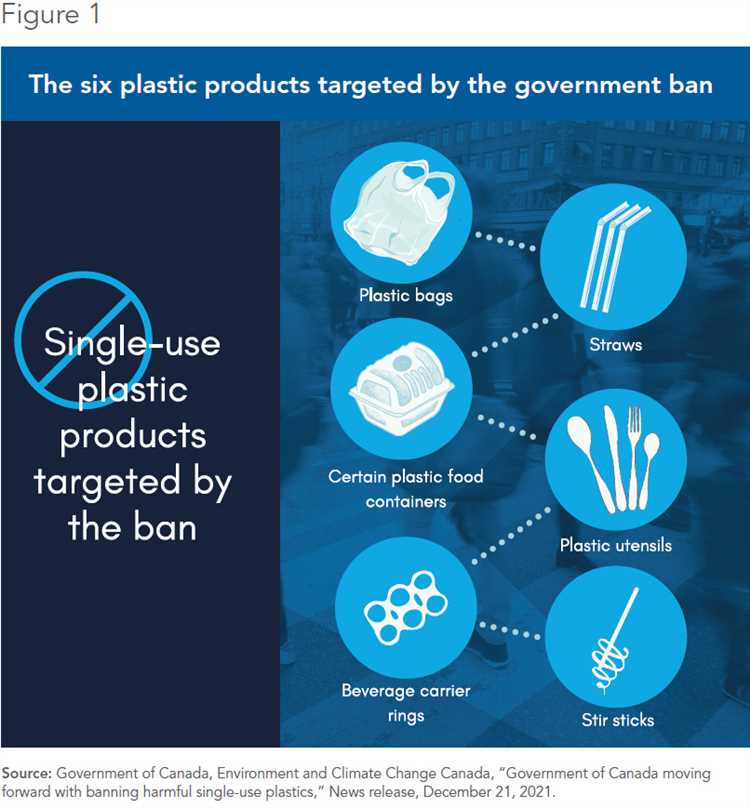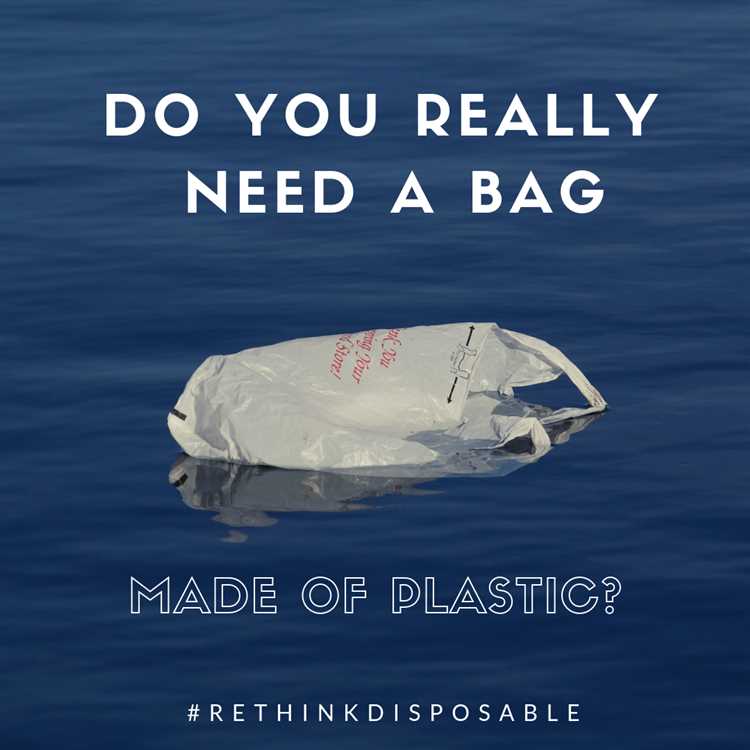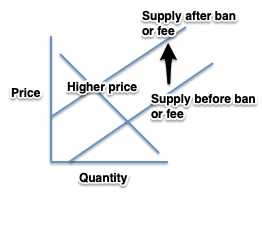The issue of plastic pollution has gained significant attention in recent years, with growing concern over the environmental impact of single-use plastic items. As a result, many countries and cities have implemented bans or restrictions on the use of plastic bags. While the aim is to reduce plastic waste and protect the environment, it is important to also examine the economic consequences of these bans.
Plastic bag bans have a direct impact on the manufacturing and retail industries. Plastic bag production is a significant industry, employing thousands of workers worldwide. When a ban is implemented, these jobs are at risk, as the demand for plastic bags decreases. This can lead to unemployment and economic instability in areas heavily reliant on the plastic bag industry.
Furthermore, retailers also face challenges as they need to find alternatives to plastic bags. This can result in additional costs for businesses, as they may need to invest in new packaging options or offer reusable bags to customers. These additional costs can ultimately be passed on to the consumer, leading to potentially higher prices for goods and services.
However, it is important to note that there are also potential economic benefits to plastic bag bans. For instance, the ban can drive innovation and the development of alternative materials in the packaging industry. This can create new business opportunities and job growth in industries focused on sustainable and eco-friendly solutions.
Overall, the plastic bag ban has both positive and negative economic consequences. While it may lead to job losses and increased costs for businesses initially, it also presents an opportunity for economic growth and the development of more sustainable industries. Striking a balance between environmental protection and economic stability is crucial in order to achieve long-term sustainability.
- The Economic Consequences of the Plastic Bag Ban
- Environmental Impact of Plastic Bags
- Plastic Bag Bans: A Step towards Reducing Environmental Impact
- The Importance of Public Awareness and Education
- Impact on Manufacturing and Retail Industries
- 1. Manufacturing Industry
- 2. Retail Industry
- Question-answer:,
- What are the economic consequences of the plastic bag ban?
- How does the plastic bag ban affect businesses?
- What alternative options are there for businesses affected by the plastic bag ban?
- How does the plastic bag ban impact consumers?
- What are some potential solutions to mitigate the negative economic impacts of the plastic bag ban?
The Economic Consequences of the Plastic Bag Ban
The implementation of a plastic bag ban has far-reaching economic consequences that are felt by various stakeholders in the economy. While proponents argue that the ban is necessary to reduce environmental damage caused by plastic bags, opponents claim that it negatively impacts businesses and consumers.
One of the main economic consequences of the plastic bag ban is the increased cost for businesses. With the ban in place, businesses are required to invest in alternative packaging materials, such as paper or reusable bags, which are generally more expensive. This additional cost is often passed on to consumers, resulting in higher prices for goods and services.
The ban also affects employment in the plastic bag manufacturing industry. As the demand for plastic bags decreases, manufacturers may be forced to downsize or shut down altogether, leading to job losses. This can have a significant impact on local economies, especially in areas where plastic bag manufacturing is a major source of employment.
On the other hand, proponents of the ban argue that it can stimulate the growth of the reusable bag industry. With consumers no longer relying on single-use plastic bags, there is an increased demand for reusable bags, creating opportunities for businesses in this sector. This can contribute to job creation and economic growth in the long term.
| Positive Economic Consequences | Negative Economic Consequences |
|---|---|
| – Growth of the reusable bag industry
– Job creation in the reusable bag sector – Reduced environmental damage |
– Increased cost for businesses
– Higher prices for consumers – Job losses in the plastic bag manufacturing industry |
In addition to the direct economic consequences, the plastic bag ban can also have indirect effects on other sectors of the economy. For example, the ban may lead to changes in consumer behavior, such as increased use of reusable bags or a shift towards alternative packaging materials. These changes can impact industries like packaging and waste management.
Overall, the economic consequences of the plastic bag ban are complex and can vary depending on the context and specific conditions of each economy. While there may be short-term costs associated with the ban, it is argued that the long-term benefits, such as reduced environmental damage and the promotion of sustainable practices, outweigh the economic challenges.
Environmental Impact of Plastic Bags
Plastic bags have become a significant environmental concern due to their harmful effects on the environment. They are non-biodegradable and can take hundreds of years to decompose, leading to an accumulation of plastic waste in landfills and oceans.
One of the biggest environmental impacts of plastic bags is their contribution to marine pollution. When plastic bags are not properly disposed of, they often end up in water bodies like rivers and oceans. Marine animals, such as sea turtles, dolphins, and seals, can mistake these bags for food and consume them, causing severe injuries or even death. The ingestion of plastic bags by marine animals also leads to the bioaccumulation of toxins in their bodies, which can then enter the food chain and pose a threat to humans as well.
In addition to marine pollution, the production of plastic bags has significant environmental consequences. The manufacturing process requires the extraction of fossil fuels, which contributes to air and water pollution. Moreover, the production of plastic bags generates greenhouse gas emissions, contributing to global warming and climate change.
Plastic Bag Bans: A Step towards Reducing Environmental Impact
In response to the environmental concerns associated with plastic bags, many countries and cities have implemented plastic bag bans or levies. These policies aim to reduce the consumption and disposal of plastic bags by promoting the use of reusable bags or alternative packaging options.
The implementation of plastic bag bans has shown promising results in reducing plastic waste and marine pollution. Several studies have found a significant decrease in the number of plastic bags found in the environment, including water bodies and landfills, after the implementation of these policies. This reduction has also been accompanied by a decrease in the harmful effects on marine wildlife.
Furthermore, the adoption of reusable bags as a replacement for plastic bags can significantly reduce the environmental impact. Reusable bags are often made from materials like cotton or canvas, which are biodegradable and have a lower carbon footprint compared to plastic. By encouraging the use of reusable bags, plastic bag bans promote sustainable practices and help reduce waste generation.
The Importance of Public Awareness and Education

While plastic bag bans have proven effective in reducing environmental impact, their success relies on public awareness and education. By raising awareness about the harmful effects of plastic bags and promoting sustainable alternatives, individuals can make more informed choices and actively contribute to reducing plastic waste.
Educational campaigns can highlight the benefits of using reusable bags and provide information on where to obtain them. Additionally, recycling programs can be implemented to ensure that plastic bags are properly disposed of and recycled instead of ending up in landfills or water bodies.
| Environmental Impact |
– Non-biodegradable – Marine pollution – Harmful to marine wildlife – Bioaccumulation of toxins – Greenhouse gas emissions – Contributing to global warming – Air and water pollution |
|---|---|
| Solutions |
– Plastic bag bans – Promotion of reusable bags – Public awareness and education – Recycling programs |
Impact on Manufacturing and Retail Industries
The implementation of a plastic bag ban can have significant consequences for the manufacturing and retail sectors. These industries play a crucial role in the production and distribution of plastic bags, and any change in the demand for these products can have far-reaching effects.
1. Manufacturing Industry

The manufacturing industry is responsible for producing plastic bags on a large scale. With a ban on plastic bags, there will inevitably be a decrease in the demand for these products. As a result, manufacturers may need to adjust their production processes, shift their focus to alternative products, or even consider downsizing their operations.
On the other hand, the ban can also create opportunities for manufacturers to pivot towards producing more environmentally friendly alternatives, such as reusable bags made from biodegradable materials. This shift in production can stimulate innovation and promote the development of new manufacturing techniques and materials.
2. Retail Industry

The retail industry is directly impacted by the plastic bag ban as it relies heavily on plastic bags for packaging and carrying goods. Retailers will need to find alternative ways to package products and provide customers with convenient options for transporting their purchases.
One option for retailers is to offer reusable bags for sale or provide incentives for customers to bring their own bags. This can encourage a shift in consumer behavior towards more sustainable practices and reduce the dependency on single-use plastic bags.
However, retailers may also face challenges in adapting to the ban, particularly in terms of additional costs associated with alternative packaging materials and potential changes in consumer preferences. It may require investments in infrastructure, employee training, and marketing campaigns to effectively navigate these changes.
In conclusion, the plastic bag ban has both positive and negative implications for the manufacturing and retail industries. While it may lead to adjustments and challenges, it also presents opportunities for innovation and the promotion of sustainable practices. Overall, the long-term impact will depend on how well these industries adapt and embrace the shift towards more environmentally friendly practices.
Question-answer:,
What are the economic consequences of the plastic bag ban?
The economic consequences of the plastic bag ban include both positive and negative impacts. On one hand, the ban can lead to a decrease in plastic waste, which can have environmental benefits in the long run. It also encourages the use of reusable bags, which can reduce costs for consumers in the long term. On the other hand, the ban may lead to job losses in the plastic bag manufacturing industry and increased costs for businesses that rely on plastic bags for packaging and transportation.
How does the plastic bag ban affect businesses?
The plastic bag ban can have both positive and negative effects on businesses. Some businesses may experience increased costs as they need to find alternatives to plastic bags for packaging and transportation. This can be particularly challenging for small businesses with limited resources. However, the ban can also create opportunities for businesses that produce and sell reusable bags. These businesses may benefit from increased demand for their products.
What alternative options are there for businesses affected by the plastic bag ban?
Businesses affected by the plastic bag ban have several alternative options for packaging and transportation. They can opt for paper bags, which are biodegradable and can be recycled. However, paper bags can be more expensive and may not be as durable as plastic bags. Another option is to use reusable bags made of fabric or other materials, which can be more cost-effective in the long run. Additionally, businesses can encourage customers to bring their own bags or offer incentives for using reusable bags.
How does the plastic bag ban impact consumers?
The plastic bag ban can affect consumers in several ways. Firstly, consumers may need to adjust their shopping habits and remember to bring their own bags when they go shopping. This can be inconvenient for some consumers. Secondly, consumers may need to pay for reusable bags if they don’t already own them. However, in the long run, using reusable bags can save consumers money as they won’t need to constantly purchase single-use plastic bags. Finally, the ban may result in increased costs for certain goods and services as businesses pass on their increased expenses due to the ban.
What are some potential solutions to mitigate the negative economic impacts of the plastic bag ban?
There are several potential solutions to mitigate the negative economic impacts of the plastic bag ban. One solution is to provide financial assistance or incentives to businesses affected by the ban to help them transition to alternative packaging options. Another solution is to invest in research and development of more sustainable and cost-effective alternatives to plastic bags. Additionally, governments can work with businesses and stakeholders to develop recycling programs for plastic bags, which can help reduce waste and create new opportunities for the recycling industry.